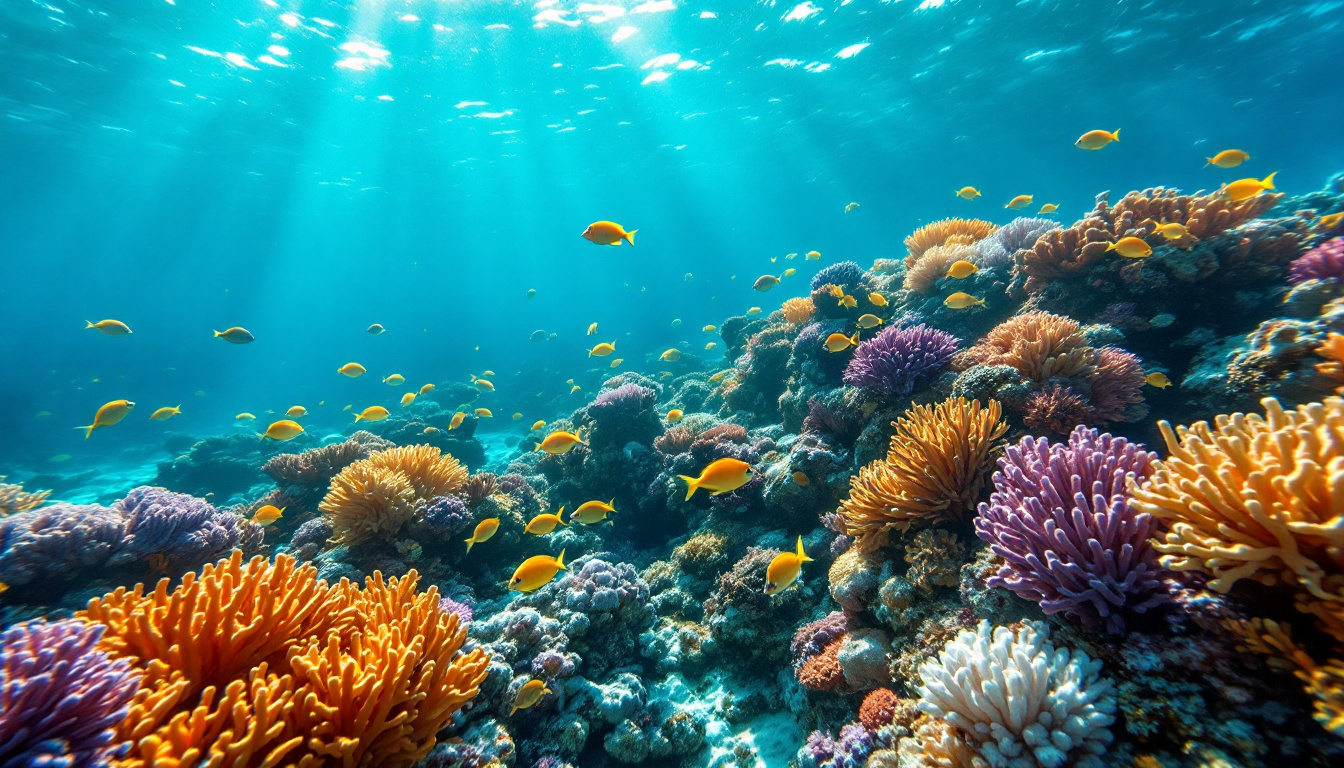Standing on Grand Anse Beach at sunrise, watching local fishermen pull in nets heavy with parrotfish while Barbados tourists battle resort crowds just 100 miles north, I understood why travel insiders guard Grenada’s secrets so fiercely. This spice-scented island delivers everything Barbados promises—pristine reefs, powder-soft beaches, crystalline waters—but with 70% fewer crowds and marine ecosystems that remain genuinely untouched.
The numbers don’t lie: while Barbados welcomes over 1.2 million visitors annually, Grenada hosts just 350,000, creating the intimate Caribbean experience that vanished from popular islands decades ago. More importantly, Grenada’s coral reefs show remarkable resilience, with new conservation nurseries established in 2025 successfully cultivating critically endangered staghorn and elkhorn corals at 32-foot depths off Grand Anse Beach.
After photographing reefs across the Caribbean for two decades, I can confirm that Grenada’s waters offer visibility and coral health that surpass Barbados’ heavily touristed western coast, where reefs have lost an average of 137 meters annually due to visitor impact and coastal development.
Why Grenada’s reefs outperform Caribbean favorites
Marine protection creates visible differences
Grenada’s three Marine Protected Areas—Woburn, Molinière, and Grand Anse—benefit from over USD 500,000 in conservation investment since 2019 through the Caribbean Biodiversity Fund. Unlike Barbados’ tourist-heavy dive sites, these waters maintain natural fish populations and coral coverage that underwater photographers dream of capturing.
Innovation meets conservation
Local initiatives like sea moss farming using recycled plastic bottles as flotation devices demonstrate Grenada’s commitment to sustainable marine practices. The island’s first coral gene bank, established in 2025, preserves and propagates endangered species while Barbados struggles with ongoing reef degradation and mass bleaching events.
The crowd advantage that changes everything
Beach experiences without the chaos
Grand Anse Beach stretches for two miles of uninterrupted sand where you’ll encounter more nutmeg vendors than cruise passengers. Compare this to Barbados’ packed west coast beaches where finding space requires arriving before dawn, and the appeal becomes obvious to travelers seeking authentic Caribbean tranquility.
Diving sites with elbow room
Molinière Underwater Sculpture Park hosts the world’s first underwater art installation, yet remains blissfully uncrowded compared to Barbados’ overbooked dive operators. Visibility consistently exceeds 80 feet, allowing photographers to capture Caribbean marine life without competing for position with dozens of other divers.
The spice island advantage nobody mentions
Cultural authenticity beyond beaches
As the world’s only major nutmeg and mace producer, Grenada offers agricultural tourism experiences unavailable anywhere else in the Caribbean. Spice plantation tours reveal centuries-old cultivation methods while Barbados relies primarily on imported seasonings for its cuisine.
Local costs reflect authentic values
Accommodation averages 30% less than comparable Barbados properties, while locally-sourced meals featuring fresh spices cost significantly less than resort dining. A week-long stay including flights, accommodation, and activities typically runs $200-400 less per person than equivalent Barbados experiences.
Access and timing that works for everyone
Growing connectivity makes arrival simple
Maurice Bishop International Airport now welcomes direct flights from major US hubs, with JetBlue, American, and Southwest offering competitive rates. UK travelers connect easily through Barbados or other Caribbean hubs, while the visa-free policy for US, UK, and Australian citizens simplifies planning.
September offers peak advantages
While hurricane season concerns keep crowds away, September delivers consistently warm weather with 82°F average temperatures and lower accommodation rates. The brief afternoon showers that define Caribbean wet season create dramatic lighting for photography while keeping beaches comfortably uncrowded.
Grenada succeeds where Barbados overwhelms because it prioritizes quality over quantity, conservation over commercialization, and authentic cultural exchange over mass tourism entertainment. The island’s commitment to sustainable practices ensures that these advantages will persist as more travelers discover what locals have known for generations.
For travelers seeking the Caribbean experience without Caribbean crowds, Grenada delivers superior value with environmental consciousness and cultural authenticity that transforms typical beach vacations into meaningful cultural immersion experiences worth protecting through responsible tourism choices and marine conservation support.
